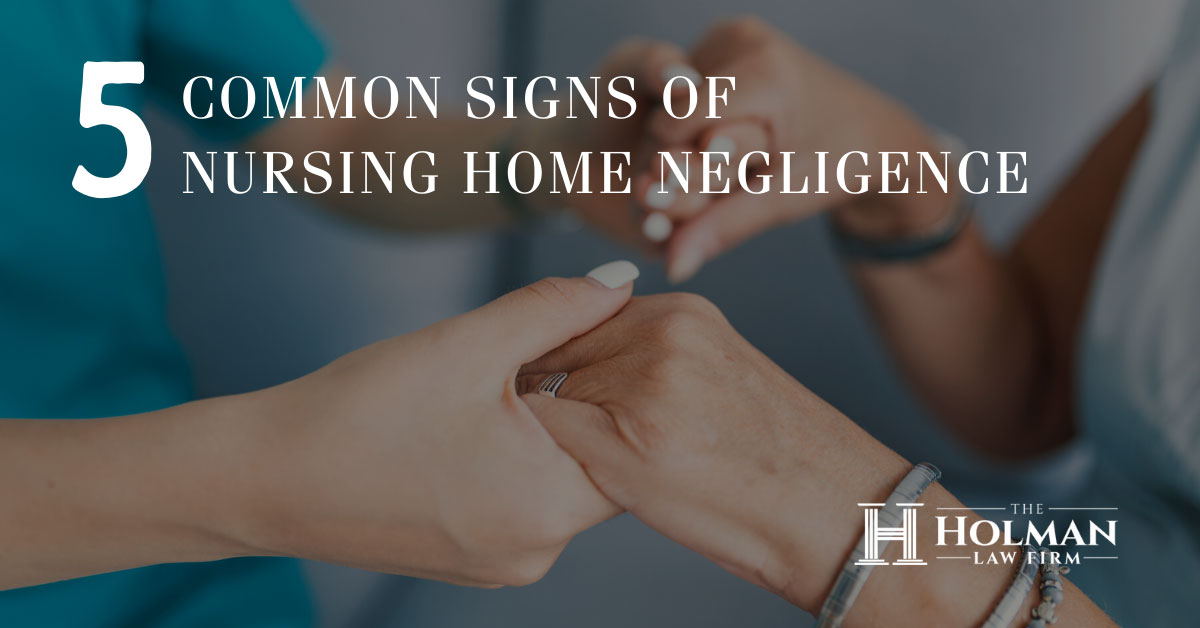When we hear the terms abuse and neglect, many of our minds go straight to children and women. While both of these populations deserves and are in need of protective services, there is one group of people in particular that seems to often be forgotten: the aging population. Older adults residing in assisted living facilities are at the mercy of their caretakers. Unfortunately, cases of abuse and neglect are not uncommon among these aging adults.
According to the National Adult Protective Services Association, neglect is “a form of mistreatment by individuals resulting from inadequate attention, especially through carelessness or disregard for the needs of others.” This does not just refer to physical needs. Negligence can take on many different faces. Let’s take a closer look.
- Neglecting Basic Needs: This includes food, water and shelter, but it doesn’t stop there. Providing a clean and sanitary living environment falls under this category as well.
- Signs to watch for: dehydration, malnutrition, bedsores, weight loss, physical injuries and unmaintained living facility or hazardous conditions like lack of or unsafe wheelchairs, slippery floor, poor lighting, etc.
- Emotional Neglect: Ignoring or isolating patients, belittling their needs, threatening or yelling at them all constitute emotional neglect.
- Signs to watch for: insomnia, fear of being alone, changes in behavior, repetitive actions (mumbling, rocking, etc.) depression or anxiety.
- Neglecting Personal Hygiene: Often times, nursing home residents need assistance with simple tasks like brushing teeth and hair, changing clothes and bathing, but they also may rely on caregivers to change their bed sheets and do laundry.
- Signs to watch for: change in physical appearance, dirty/damaged clothes, poor dental hygiene, soiled bed sheets, un-kept hair, poor odor etc.
- Medical Neglect: Nursing facility staff is responsible for providing residents with proper medication and dosage in addition to medical attention for cuts/bruises, cognitive disorders, infections, diabetes and turning residents when mobility is limited. Medical neglect occurs when these do not happen.
- Signs to watch for: change in physical condition such as level of pain or discomfort, bedsores, worsening of preexisting conditions or change in cognitive behavior.
- Financial Exploitation: This can be defined as the unapproved usage of an individual’s property or funds by a caregiver.
- Signs to watch for: sudden change in residents bank accounts, addition of names to account, forging of signatures, changes in will or power of attorney, unwarranted subscriptions, goods or services.
While elder neglect can appear in many different forms, it is important to recognize the signs. Knowing what to look for can prevent further damage from happening, and promptly reporting the negligence could save someone’s life.
The Holman Law Firm is committed to providing the best legal service in Pensacola, Destin, Pace and Cantonment, FL, in a variety of legal areas including Family Law and Personal Injury. We specialize in Fathers’ Rights and will be there every step of the way to fight for your rights. Contact us now for a free consultation at our office or go online at www.holmanfirm.com.
Services We Offer:
Family Law | Child Custody | Divorce | Personal Injury | Auto Accidents



